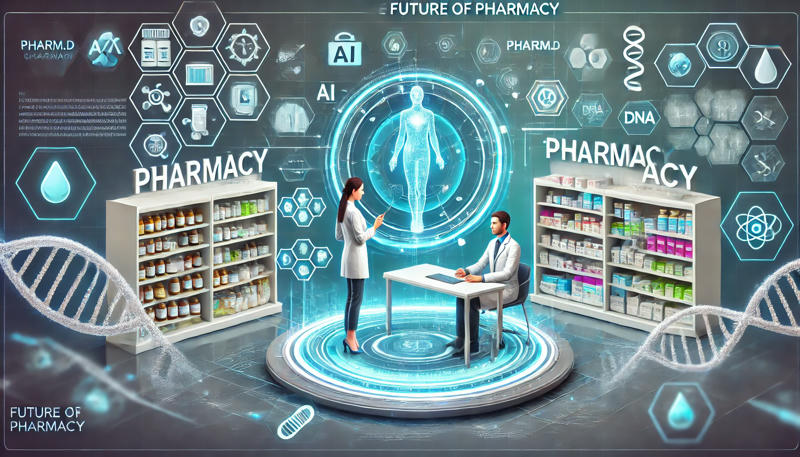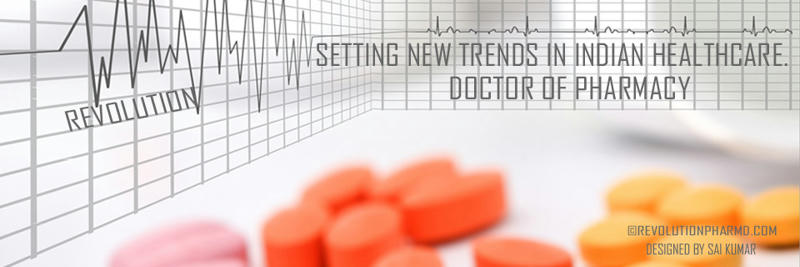Showing posts with label News. Show all posts
Showing posts with label News. Show all posts
Doctors may get brand name bar
KOLKATA: Brand names of drugs could soon disappear from prescriptions
issued in government hospitals. The health department is about to issue
an order making it mandatory for doctors to mention the generic name of
medicines instead of their brands while writing prescriptions.
This is being done to prevent pharmaceutical companies from pushing
their products in government hospitals, which are supposed to provide
medicines free of charge to patients. The decision will be conveyed to
the superintendents of government hospitals on February 24.
Students told to think,Experiment and Innovate
 Indian Pharmaceutical Association president Dr Gopala Krishna Murthy IPA addressing Fourth Pharmacy Students Congress in Warangal on Saturday. Student delegates in the audience.
Indian Pharmaceutical Association president Dr Gopala Krishna Murthy IPA addressing Fourth Pharmacy Students Congress in Warangal on Saturday. Student delegates in the audience. Students ask PCI to initiate immediate action against erring pharma colleges for fake faculty
Even as the pharmacy colleges are mushrooming in the country, there are
serious allegations about the quality of faculty in these colleges. The
aggrieved students have raised question marks over the role being
played by pharma education regulators like the Pharmacy Council of India
(PCI) for failing to control the spreading rot in the pharma education
system in the country.
According to sources, several pharmacy colleges in the country are working without qualified faculty. In these colleges, most of the faculty members remain in paper only. In actual practice, these colleges are being run without qualified teachers, which will have an adverse effect on the quality of education imparted by these colleges.
The modus operandi of these colleges is that at the time of inspections by the PCI inspectors, they will provide a list of qualified faculty which will remain on paper only. The list of faculty provided by these pharmacy colleges to the PCI during the time of inspection are fake and most of the faculty members listed by the colleges are in fact not working with the colleges, sources said.
The aggrieved students have alleged that such malpractices are being resorted to by these colleges in collusion with the PCI as the repeated pleas of the students to the PCI to look into the issue did not bear any fruit so far. “Why the PCI doesn't like to take any action on fake document submitted by some fake pharmacy colleges even though PCI have been informed via mail or on phone call? What’s the reason behind? Means PCI taking BRIBE or else reason?,” asked the aggrieved students in their letter to the PCI.
Citing an example of fake faculty, the students have referred to the HIMT College of Pharmacy, Noida, UP.
Among the 16 faculty members mentioned in the website of HIMT, the students said that the faculty No 3 Dr Adnan is working in another company while his name has been shown as regular faculty. Likewise, faculty Nos 14, 15 and 16 Tanu, Manisha Gupta and Nehal Mohsin are not working with HIMT but have been shown as faculty members. Tanu and Manisha had resigned from the college long back and Manisha is working at AIIMS and Tanu and Nehal are working in a company and are not coming to HIMT at all. Faculty No 6 Danish Mahmood is working in Ranbaxy on regular basis and not coming to the college at all. Likewise, faculty No 6 and Abdus and Shabaz are also not working in HIMT even though have been shown as faculty members, the students said.
The fake list does not end here. More interesting faculty No 9 Pravez Ansari is not even in India and the college has shown him as regular faculty.
The aggrieved students have warned the PCI to take immediate action against the erring colleges, otherwise they will be forced to move court.
SOURCE : PHARMABIZ
According to sources, several pharmacy colleges in the country are working without qualified faculty. In these colleges, most of the faculty members remain in paper only. In actual practice, these colleges are being run without qualified teachers, which will have an adverse effect on the quality of education imparted by these colleges.
The modus operandi of these colleges is that at the time of inspections by the PCI inspectors, they will provide a list of qualified faculty which will remain on paper only. The list of faculty provided by these pharmacy colleges to the PCI during the time of inspection are fake and most of the faculty members listed by the colleges are in fact not working with the colleges, sources said.
The aggrieved students have alleged that such malpractices are being resorted to by these colleges in collusion with the PCI as the repeated pleas of the students to the PCI to look into the issue did not bear any fruit so far. “Why the PCI doesn't like to take any action on fake document submitted by some fake pharmacy colleges even though PCI have been informed via mail or on phone call? What’s the reason behind? Means PCI taking BRIBE or else reason?,” asked the aggrieved students in their letter to the PCI.
Citing an example of fake faculty, the students have referred to the HIMT College of Pharmacy, Noida, UP.
Among the 16 faculty members mentioned in the website of HIMT, the students said that the faculty No 3 Dr Adnan is working in another company while his name has been shown as regular faculty. Likewise, faculty Nos 14, 15 and 16 Tanu, Manisha Gupta and Nehal Mohsin are not working with HIMT but have been shown as faculty members. Tanu and Manisha had resigned from the college long back and Manisha is working at AIIMS and Tanu and Nehal are working in a company and are not coming to HIMT at all. Faculty No 6 Danish Mahmood is working in Ranbaxy on regular basis and not coming to the college at all. Likewise, faculty No 6 and Abdus and Shabaz are also not working in HIMT even though have been shown as faculty members, the students said.
The fake list does not end here. More interesting faculty No 9 Pravez Ansari is not even in India and the college has shown him as regular faculty.
The aggrieved students have warned the PCI to take immediate action against the erring colleges, otherwise they will be forced to move court.
SOURCE : PHARMABIZ
IPA-SF to organise 4th National Pharmacy Students Congress in Andhra Pradesh on Feb 18-19
Thursday, January 12, 2012, 08:00 Hrs [IST]
Indian Pharmaceutical Association (IPA) with its division, Students Forum (IPA-SF) is organizing the 4th National Pharmacy Students Congress on February 18 and 19 at St. Peter’s Institute of Pharmaceutical Sciences, Warangal, Andhra Pradesh in association with IPA, Hanamkonda local branch for the first time in the state.
A pre-congress programme of leadership in training (LIT) is also proposed to organise on February 17 to the future leaders of the pharmacy profession at the institute. The theme of the congress is “Evidence Based Pharmacy Education.”
Dr T V Narayana, chairman, IPA-Education Division, Dr Diwakar Goli, secretary of IPA-Education Division and principal of Acharya & B M Reddy College of Pharmacy, Bangalore, Ratan, IPA-SF chairperson, and Dr Rao VSV Vadlamudi, editor, Indian Journal of Pharmaceutical Sciences will be present at the congress.
“This year students from the country attending the congress will get a chance to put forward their views and issues in front of the representatives of apex bodies and various authorities like Pharmacy Council of India (PCI), All India Council for Technical Education (AICTE), etc. which will help them to solve their queries and by putting forward their issues will help apex bodies to provide solutions,” informed Dr Goli, principal of Acharya & B M Reddy College of Pharmacy, Bangalore.
The Congress is focused mainly on students' perspectives of Pharmacy Education in line with the industry expectations. T Jayapal Reddy is the chairman of the local organising committee (LOC) that has been formed to organise this congress. This year nearly 5000 pharmacy students including IPA-SF leaders from all parts of the country are expected to attend this congress.
IPA-SF committees are in the talks to form students forum committee wherein the elections would be undertaken and students can select their head. The forum has also formed an IPA-SF official discussion group in the yahoo website. The students' forum focuses on sensitization, motivation and encouragement of students at various colleges and universities to discuss regular issues relating to pharmacy.
Source:Pharmabiz.
Indian Pharmaceutical Association (IPA) with its division, Students Forum (IPA-SF) is organizing the 4th National Pharmacy Students Congress on February 18 and 19 at St. Peter’s Institute of Pharmaceutical Sciences, Warangal, Andhra Pradesh in association with IPA, Hanamkonda local branch for the first time in the state.
A pre-congress programme of leadership in training (LIT) is also proposed to organise on February 17 to the future leaders of the pharmacy profession at the institute. The theme of the congress is “Evidence Based Pharmacy Education.”
Dr T V Narayana, chairman, IPA-Education Division, Dr Diwakar Goli, secretary of IPA-Education Division and principal of Acharya & B M Reddy College of Pharmacy, Bangalore, Ratan, IPA-SF chairperson, and Dr Rao VSV Vadlamudi, editor, Indian Journal of Pharmaceutical Sciences will be present at the congress.
“This year students from the country attending the congress will get a chance to put forward their views and issues in front of the representatives of apex bodies and various authorities like Pharmacy Council of India (PCI), All India Council for Technical Education (AICTE), etc. which will help them to solve their queries and by putting forward their issues will help apex bodies to provide solutions,” informed Dr Goli, principal of Acharya & B M Reddy College of Pharmacy, Bangalore.
The Congress is focused mainly on students' perspectives of Pharmacy Education in line with the industry expectations. T Jayapal Reddy is the chairman of the local organising committee (LOC) that has been formed to organise this congress. This year nearly 5000 pharmacy students including IPA-SF leaders from all parts of the country are expected to attend this congress.
IPA-SF committees are in the talks to form students forum committee wherein the elections would be undertaken and students can select their head. The forum has also formed an IPA-SF official discussion group in the yahoo website. The students' forum focuses on sensitization, motivation and encouragement of students at various colleges and universities to discuss regular issues relating to pharmacy.
Source:Pharmabiz.
22 centres opened to monitor drug side effects
NEW DELHI: India has put
in place 22 monitoring centres to combat adverse drug reactions (ADR) --
unintended side effects, some of which could prove fatal.
These centers have been put under the country's new pharmaco vigilance programme.
Records say between 2006 and 2008, India saw 11,633 cases of ADRs.
Under the country's new programme -- since September 2010 -- 1,394 cases of ADR have been reported.
None of the ADRs, however, has led to any restriction/prohibition on any drug in the country so far.
In some countries, ADR-related costs -- such as hospitalisation, surgery and lost productivity -- exceed the cost of medication.
"No medicine is risk free. Vigilant assessment of the risks and benefits of medicines promotes patient safety," said an expert.
All India Institute of Medical Sciences (AIIMS) in New Delhi has been made the national coordination centre for monitoring ADRs in the country. Among the 22 centres, Delhi has two, including AIIMS, West Bengal (2), Tamil Nadu (2), Orissa (2), Jammu and Kashmir (2) with Assam, Chandigarh, Madhya Pradesh, Puducherry, Karnataka, Uttarakhand, Maharashtra, Haryana and Punjab one each.
According to the World Health Organization (WHO), at least 60% of ADRs are preventable, and can occur due to wrong diagnosis of the patient's condition, prescription of the wrong drug or wrong dosage of the right drug, an undetected medical, genetic or allergic condition that might cause a patient reaction, self-medication with prescription medicines, not following the instructions for taking the medication and use of a sub-standard medication whose composition and ingredients do not meet the correct scientific requirements and can be ineffective and often dangerous.
WHO says, "the safety of medicines is an essential part of patient safety. Global drug safety depends on strong national systems that monitor the development and quality of medicines, report their harmful effects and provide accurate information for their safe use. Preventing and detecting adverse effects from medicines is termed pharmacovigilance. No drug is without risk and all medicines have side effects, some of which can be fatal."
Source: TIMES OF INDIA
These centers have been put under the country's new pharmaco vigilance programme.
Records say between 2006 and 2008, India saw 11,633 cases of ADRs.
Under the country's new programme -- since September 2010 -- 1,394 cases of ADR have been reported.
None of the ADRs, however, has led to any restriction/prohibition on any drug in the country so far.
In some countries, ADR-related costs -- such as hospitalisation, surgery and lost productivity -- exceed the cost of medication.
"No medicine is risk free. Vigilant assessment of the risks and benefits of medicines promotes patient safety," said an expert.
All India Institute of Medical Sciences (AIIMS) in New Delhi has been made the national coordination centre for monitoring ADRs in the country. Among the 22 centres, Delhi has two, including AIIMS, West Bengal (2), Tamil Nadu (2), Orissa (2), Jammu and Kashmir (2) with Assam, Chandigarh, Madhya Pradesh, Puducherry, Karnataka, Uttarakhand, Maharashtra, Haryana and Punjab one each.
According to the World Health Organization (WHO), at least 60% of ADRs are preventable, and can occur due to wrong diagnosis of the patient's condition, prescription of the wrong drug or wrong dosage of the right drug, an undetected medical, genetic or allergic condition that might cause a patient reaction, self-medication with prescription medicines, not following the instructions for taking the medication and use of a sub-standard medication whose composition and ingredients do not meet the correct scientific requirements and can be ineffective and often dangerous.
WHO says, "the safety of medicines is an essential part of patient safety. Global drug safety depends on strong national systems that monitor the development and quality of medicines, report their harmful effects and provide accurate information for their safe use. Preventing and detecting adverse effects from medicines is termed pharmacovigilance. No drug is without risk and all medicines have side effects, some of which can be fatal."
Source: TIMES OF INDIA
Indian Pharmaceutical Association demands to enhance pharmacists' role in healthcare system
NEW DELHI: The Indian Pharmaceutical Association
(IPA) has demanded to enhance the role of pharmacists in healthcare
system in the country. In this regard, a representation has been sent to
the Ministry of Health and Family Welfare (MoH&FW) on behalf of the
Association.
The IPA wants to provide equal opportunity to all pharmacists in the drug distribution system. Earlier, the Planning Commission made a strategy to distribute free medicines through public hospitals. Taking this strategy, the IPA has demanded the Central Government to adopt the same model being followed by the Tamil Nadu Medical Services Corporation, where pharmacists have to play an important role in drug distribution system.
“The government should realise that the pharmacists in the country are well educated and trained enough to handle drugs and can play a vital role in ensuring better access of medicines to the patients along with providing counselling and patient support. But for this it is essential that our role is well identified and recognised in the society by the government and the industry. We want the government to make us part of all the discussions undertaken by the decision makers so that even we have a say in the process related to the use of medicines in the country at various levels,” said Raj Vaidya, Vice President-chairman, Community Pharmacy Division, IPA.
The IPA wants to provide equal opportunity to all pharmacists in the drug distribution system. Earlier, the Planning Commission made a strategy to distribute free medicines through public hospitals. Taking this strategy, the IPA has demanded the Central Government to adopt the same model being followed by the Tamil Nadu Medical Services Corporation, where pharmacists have to play an important role in drug distribution system.
“The government should realise that the pharmacists in the country are well educated and trained enough to handle drugs and can play a vital role in ensuring better access of medicines to the patients along with providing counselling and patient support. But for this it is essential that our role is well identified and recognised in the society by the government and the industry. We want the government to make us part of all the discussions undertaken by the decision makers so that even we have a say in the process related to the use of medicines in the country at various levels,” said Raj Vaidya, Vice President-chairman, Community Pharmacy Division, IPA.
Centre needs to elaborate hospital pharmacy in MBBS curriculum: Indian Pharmaceutical Association
NEW DELHI: The Indian Pharmaceutical Association
(IPA) is mulling to send a representation to the Health Ministry by end
of this month to request them to take immediate measures to elaborate
the provisions of hospital pharmacy syllabus in the MBBS curriculum.
IPA is of the opinion that only by doing so, then the MCI inspectors will be able to ensure full adherence of the current provisions in all the medical colleges in India. It is necessary to take steps to give information specifically which meets the demand of hospital pharmacy among the medical graduates for better management of the Healthcare.
Dr RN Gupta, Chairman of Hospital Pharmacy Division, IPA, said, “We want to ensure that this profession is put into use in a pro-active manner for the benefit of the society as well as for pharmacy in general. Developing hospital pharmacy in the country will not only lead to a better healthcare system but also will help in generating jobs opportunities for the pharmacy graduates and post graduates in the hospitals and other areas.”
Currently the sections in hospital pharmacy department deals with drug store inventory management, hospital formulary and drug procurement and also indoor dispensing and outdoor dispensing, patient counselling, nuclear pharmacy. A detailed emphasis on hospital pharmacy will be helpful in proper procurement of medicines in hospital, production and supply of medicines consisting of those medicines that are required in emergency.
IPA is of the opinion that only by doing so, then the MCI inspectors will be able to ensure full adherence of the current provisions in all the medical colleges in India. It is necessary to take steps to give information specifically which meets the demand of hospital pharmacy among the medical graduates for better management of the Healthcare.
Dr RN Gupta, Chairman of Hospital Pharmacy Division, IPA, said, “We want to ensure that this profession is put into use in a pro-active manner for the benefit of the society as well as for pharmacy in general. Developing hospital pharmacy in the country will not only lead to a better healthcare system but also will help in generating jobs opportunities for the pharmacy graduates and post graduates in the hospitals and other areas.”
Currently the sections in hospital pharmacy department deals with drug store inventory management, hospital formulary and drug procurement and also indoor dispensing and outdoor dispensing, patient counselling, nuclear pharmacy. A detailed emphasis on hospital pharmacy will be helpful in proper procurement of medicines in hospital, production and supply of medicines consisting of those medicines that are required in emergency.
Is a Pharmacist with a Doctorate Called a Doctor ?
Patti McCarver, a nurse whose doctor of nursing practice degree entitles her to call herself “doctor,” meeting with a patient.
Thousands of nurses are returning to school to earn a doctorate. In
fact, doctorates seem to be appearing all over health professions,
resulting in a battle over the title “doctor” and the money, power and
prestige that often come with it.
Physicians and their allies are pushing legislative efforts to restrict
who gets to use the title of doctor. A bill proposed in the New York
State Senate would bar nurses from advertising themselves as doctors, no
matter their degree. A law proposed in Congress would bar people from
misrepresenting their education or license to practice. And laws already
in effect in Arizona, Delaware and other states forbid nurses,
pharmacists and others to use the title “doctor” unless they immediately
identify their profession.
The deeper battle is over who gets to treat patients first. Pharmacists, physical therapists and nurses largely play secondary roles to physicians, since patients tend to go to them only after a prescription, a referral or instructions from a physician. By requiring doctorates of new entrants, leaders of the pharmacy and physical therapy professions hope their members will be able to treat patients directly and thereby get a larger share of money spent on patient care.
The deeper battle is over who gets to treat patients first. Pharmacists, physical therapists and nurses largely play secondary roles to physicians, since patients tend to go to them only after a prescription, a referral or instructions from a physician. By requiring doctorates of new entrants, leaders of the pharmacy and physical therapy professions hope their members will be able to treat patients directly and thereby get a larger share of money spent on patient care.
Subscribe to:
Posts (Atom)








